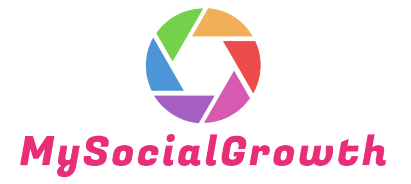There are a variety of social media platforms available for marketing, and the right platforms for your business will depend on your goals and target audience. Here are a few examples of different types of social media platforms:
1. Facebook: With over 2 billion active users, Facebook is one of the most popular social media platforms for businesses. It can be used to promote content, build a community, and generate leads.
2. Instagram: Instagram is a visual platform that is particularly popular with younger audiences. It can be used to showcase products, share behind-the-scenes content, and build a brand identity.
3. Twitter: Twitter is known for its real-time engagement and can be used to share news and updates, engage with customers, and build thought leadership in your industry.
4. LinkedIn: LinkedIn is a professional networking platform that can be used to build a professional brand, connect with other professionals, and share industry insights.
5. YouTube: YouTube is a video platform that can be used to share educational content, product demos, and thought leadership content.
6. TikTok: TikTok is a relatively new social media platform that is particularly popular with younger audiences. It can be used to share short-form video content and build brand awareness.
7. Pinterest: Pinterest is a visual platform that is particularly popular with users looking for inspiration and ideas. It can be used to promote products, share tutorials, and drive traffic to your website.
8. Snapchat: Snapchat is a mobile app that is particularly popular with younger audiences. It can be used to share short-form video and image content that disappears after 24 hours, and can be used to build brand awareness and promote events.
9. Reddit: Reddit is a social news and discussion website that can be used to connect with niche communities and share thought leadership content. It can be a good platform for businesses in industries like technology or finance.
10. Quora: Quora is a question-and-answer website that can be used to establish thought leadership in your industry and answer questions from potential customers.
11. Tumblr: Tumblr is a microblogging platform that can be used to share visual content, like images and GIFs, and can be a good platform for businesses with a focus on creativity.
12. Clubhouse: Clubhouse is a relatively new social media platform that is built around audio chat rooms. It can be used to connect with industry thought leaders and share insights on a variety of topics.
13. WhatsApp: WhatsApp is a messaging app that is popular around the world. It can be used for one-to-one messaging with customers, as well as for sharing broadcast messages to a larger audience.
14. WeChat: WeChat is a messaging app that is particularly popular in China. It can be used for messaging, as well as for sharing content, making payments, and more.
15. Viber: Viber is a messaging app that can be used for one-to-one messaging, as well as for making voice and video calls. It can be a good platform for businesses that need to communicate with customers in real time.
16. Discord: Discord is a platform that was originally built for gamers, but has since expanded to other communities. It can be used to connect with niche communities and share thought leadership content.
17. Medium: Medium is a blogging platform that can be used to share long-form content and build thought leadership in your industry.
18. Twitch: Twitch is a live streaming platform that is particularly popular with gamers, but can be used for other types of live streaming content as well. It can be a good platform for businesses that want to share product demos or other types of live content.
These are just a few examples of different types of social media platforms that can be used for marketing purposes. It’s important to choose the platforms that are best suited to achieving your goals and resonating with your target audience.
Maximize the potential of your social media presence and reach new heights of success with our expert social media management service, tailored to fit the unique needs of your business and designed to generate real results that drive growth, engagement, and revenue.


Recent Comments